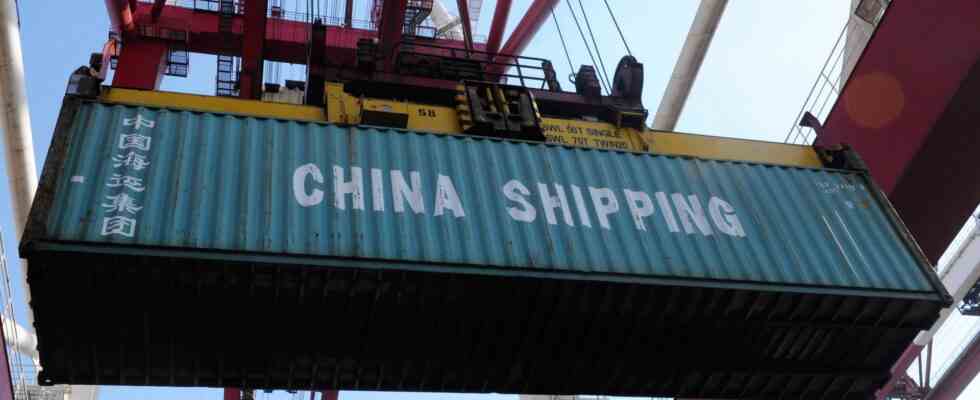Status: 07.12.2022 08:25 a.m
China’s exports and imports fell surprisingly sharply in November. Foreign trade developed worse than at the peak of the corona pandemic. This also applies to the German economy.
In view of poor global demand and ongoing corona lockdowns in China, Chinese exports calculated in dollars fell by 8.7 percent in November compared to the same month last year. This was announced today by customs in Beijing. It was the second monthly decline in a row.
In October, Chinese exports fell by 0.3 percent for the first time in more than two years. Imports fell by 10.6 percent in November and thus also much more sharply than forecast by experts. Overall, foreign trade developed even worse with a minus of 9.5 percent than at the beginning of the corona pandemic in May 2020, when the minus was 9.3 percent.
High inflation and lockdowns are weighing on the economy
A major reason for the decline in exports is weak global demand due to high inflation and energy prices as a result of the Russian war of aggression in Ukraine.
But the disruption to the supply chains in China due to the restrictions resulting from China’s strict zero-Covid policy is also making production more difficult. The widespread lockdowns and the ongoing real estate crisis are burdening the second largest economy. This also dampens domestic demand, which explains the fall in imports.
The downturn in Chinese foreign trade is also hitting German exporters hard. German exports to China fell by 17.5 percent. China’s exports to Germany also fell by 14.4 percent. The drop in Chinese exports to the US was even larger, down 25.4 percent, while China imported 7.3 percent less from the US.
The government’s growth target is missed
According to experts, the weakening Chinese economy will find it difficult to cope with the decline in foreign trade, since export growth has been an important pillar of the Chinese economy since the pandemic began almost three years ago. Experts have therefore been expecting for some time that the government will clearly miss its growth target of 5.5 percent for this year.
With the lockdowns – which, according to estimates by the Japanese financial group Nomura, affected cities and regions that contribute up to a fifth of gross domestic product in normal times – the economy is unlikely to have grown much in November. After 8.1 percent growth in the previous year, the World Bank expects China’s gross domestic product (GDP) to increase by just 2.8 percent this year.
China announces easing
Last but not least, it was probably this strong economic pressure that prompted Beijing to gently abandon its strict zero-Covid policy. Today China announced nationwide easing of the corona measures. In the case of infections without symptoms and mild courses of the disease, people could isolate themselves at home and treat themselves, the National Health Commission said.
If their condition worsens, they can go to designated clinics themselves. When traveling, a negative test is no longer necessary. There should be no movement restrictions in non-high-risk areas.

